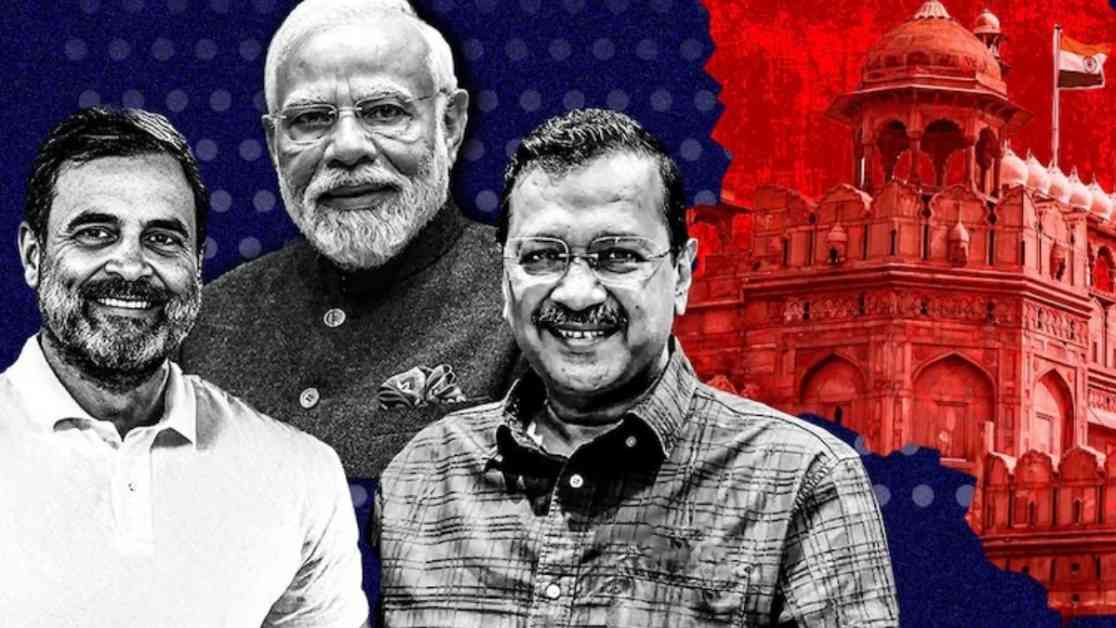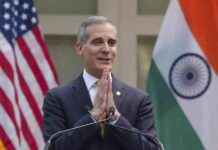Delhi Election 2025: BJP Secures Majority, Leading in 36 Seats
In a monumental showdown for Delhi, the BJP has surpassed the majority threshold, emerging as the front runner in 37 seats, based on preliminary results. This development signals a significant shift, with AAP leading in 23 seats, marking a substantial decline from its previous position. Additionally, the Congress is currently in the lead in one seat.
Among the notable figures in the race, key AAP leaders such as Arvind Kejriwal from New Delhi, Atishi from Kalkaji, and Manish Sisodia from Jungpura are trailing in their respective constituencies. Conversely, BJP’s Kapil Mishra is making strides in Karawal Nagar, while Manjinder Singh Sirsa is leading in Rajouri Nagar.
The implications of these results are profound, determining whether the Aam Aadmi Party (AAP) will maintain power for a fourth consecutive term or if the Bharatiya Janata Party (BJP) will stage a remarkable comeback after over two decades. The Congress, which has faced setbacks in the last two elections, is striving to regain lost ground.
The Lead-Up to the Tense Counting Period
In the lead-up to the crucial counting phase, the political landscape was rife with tension and drama. Notably, a team from the Anti-Corruption Branch (ACB) made a significant move by visiting AAP chief Arvind Kejriwal’s residence at 5, Ferozeshah Road. Their objective was to gather evidence supporting Kejriwal’s claims of the BJP attempting to sway AAP candidates by offering bribes and ministerial positions. This action was undertaken in the absence of Kejriwal, leading to a legal notice being served to provide proof of these allegations. The ACB’s intervention came following an order from Lieutenant Governor VK Saxena for a probe into the matter.
AAP leaders have been vocal in accusing the BJP of manipulating the narrative through exit polls and engaging in tactics to entice their candidates. Describing the BJP’s alleged strategy as “Operation Lotus,” senior AAP figure Gopal Rai highlighted the psychological pressure being exerted in the lead-up to the election results. Despite these challenges, Rai expressed confidence in AAP securing over 50 seats, with a small number expected to be closely contested.
On the other hand, Delhi BJP President Virendra Sachdeva remained steadfast in his optimism, projecting a victory in nearly 50 seats for his party. The Congress, seeking to revive its electoral fortunes after a series of defeats, is also vying for a stronger showing in the current elections.
The Intense Security Measures and Counting Process
As the electoral process unfolds, stringent security measures have been put in place to ensure a smooth and transparent counting process. A comprehensive three-tier security arrangement has been implemented, involving 10,000 police personnel, including paramilitary forces stationed at each counting center. Delhi’s Chief Electoral Officer (CEO) Alice Vaz emphasized the deployment of 5,000 trained personnel, comprising counting supervisors, assistants, micro-observers, and support staff, to oversee the process efficiently.
To maintain transparency and accuracy, a meticulous procedure involving the random selection of five VVPATs (voter-verifiable paper audit trails) will be carried out in each assembly constituency. This meticulous approach aims to uphold the integrity of the electoral process and provide assurance to all stakeholders involved.
The Significance of the Outcome
The stakes are undeniably high for all parties involved, with the results of the elections poised to reshape the political landscape of Delhi. A victory for Kejriwal and AAP would solidify their dominance in the region and elevate their national profile. Conversely, a win for the BJP would mark a historic resurgence in the capital, dealing a significant blow to AAP’s long-standing influence in Delhi.
The outcome of these elections will also determine the trajectory of the Congress party, either signaling a path to revival or further decline in Delhi’s political arena. The contest underscores the dynamic and ever-evolving nature of Indian politics, with each election bringing new narratives, challenges, and opportunities for growth and transformation.
As the results unfold and the future of Delhi’s political landscape takes shape, the significance of every vote cast and every seat won becomes increasingly apparent. The decisions made by voters in this election will not only shape the destiny of the capital but also reverberate across the national political spectrum, influencing the course of governance and leadership in the days and years to come.























